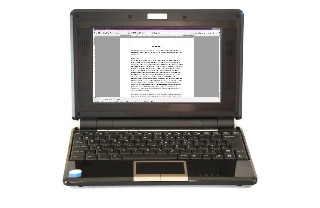
AP Biology classes did a formal lab report on DNA and plasmids. The discussion was turned in as a hard copy and a soft copy through Turnitin.com. Students had three weeks to complete the discussion, including the rough drafts and peer edits of it. Despite the help from others, large amount of time and the constant reminders about plagiarism made by teachers beforehand, many students still plagiarized off of someone else's paper.
"We always have a lot of plagiarism on this assignment," Frazier said. "It's heartbreaking because as teachers, we always try to give them help."
Senior Ben Liu was caught cheating last year on the same AP Biology assignment. Liu had one of his friends' discussion and while he was submitting his own discussion to turnitin.com, he turned in his friend's instead. The amount of plagiarized content was around 80 percent.
"If the percentage of similar content is between 10 to 30 percent, it usually means that you did copy somebody, you just didn't copy the whole thing," Liu said. "Mine was ridiculously high. It doesn't even make sense. If I was going to really cheat, I wouldn't even do that."
Unlike Liu's case, people who cheated this year had other kinds of plagiarism problem said by the teachers: copying from other websites and from other students.
"One guy asked a friend of mine [about her discussion] and while they were talking online, he copied and pasted what she said onto his actual document," a current AP Biology student who requested that her name not be used said. "What is unlucky is that people who usually don't cheat, [gave] into the whole 'cheating' mindset and got caught."
To Liu and many others, they may not think what they are doing is wrong, but looking at someone else's paper directly can result in a referral. This may be a reason why plagiarism and cheating is such a big problem.
"Cheating is really common in Monta Vista," Liu said. "We don't usually get caught because we're good at hiding it. It's just that security is a lot tighter for this assignment. The teachers really lock down on it."
The unnamed junior was asked to discuss her paper with her AP Biology teacher but says she was in the same lab group as one of the people, which led them to have the same information. She also believed that there was another reason why there was an increased number of plagiarizing incidents.
"There are a billion tests [junior year], which didn't leave much time to write a legitimate discussion," said the student.
Due to the increased number of incidents, some teachers like Frazier think its necessary for the school to talk not just about plagiarism but also about character.
According to two of the AP Bio teachers, colleges are not as lenient as MVHS administration when it comes to cheating. Here, after being caught cheating once, students are given a referral, per the Fremont Union High School District academic honesty policy. Sometimes the number of offenses can reach up to three and the punishments depend on how severe the circumstance is ranging from getting dropped from the class to being transferred to another school. With the high numbers, teachers sometimes don't know why students chose to learn about plagiarizing the hard way.
"It's really hard for me to tell what the motivation is. We're trying to limit it by turnitin.com, to lessen the temptation [of cheating]," Chow said. "Every year, you hope that it never happens but it does."








